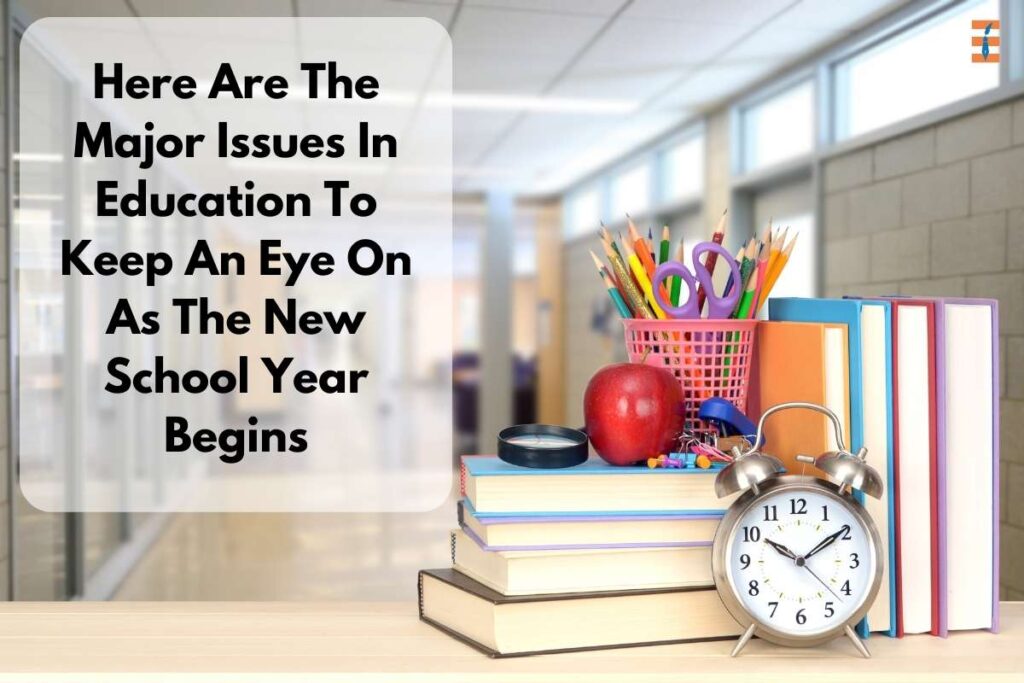As political polarization in the classroom and worries about learning loss increase in education, schools are getting ready for a new academic year.
In order to please kids, parents, and politicians at the same time as the 2024 election heats up and reports show declining test scores, educators are at the forefront of the effort.
The new year is anticipated to present significant problems for educators, including disputes at the legislative level about how and what should be taught in the classroom and the removal of books from classroom shelves and technological advancements.
Before the start of the new school year, keep an eye on the following major issues in education:
1. Learning Decline
Numerous studies have revealed that children have gotten behind in important disciplines like maths and reading as a result of the Covid-19 pandemic, which is still having an impact on students’ academic performance.
Even if the majority of students will return to the classroom in 2021, the learning loss caused by online or hybrid learning is nevertheless felt today.
According to the National Assessment of Educational Progress (NAEP), average maths and reading scores for 13-year-olds are at their lowest levels since 1990 and 2004, respectively.
In a May NAEP assessment, eighth graders’ average civics scores fell to levels last seen in 1998, while their history scores fell 9 percentage points from 2014.
Peggy Carr, commissioner of the National Centre for Education Statistics, stated following the results from June that “the bottom line is that these results show that there are troubling gaps in the basic skills of the students.”
The main takeaway from this is that we have a long journey ahead of us, said Carr.
2. Banned Books
Certain book bans and the criticism of literature in classrooms have become hot-button r issues that are unlikely to go away anytime soon.
According to PEN America, a free speech organisation, 1,477 book bans were put into effect during the first six months of the 2022–23 academic year. The group were sure to emphasise that they could only confirm those bans, and that the actual number is “unquestionably much higher.”
The group claimed that over the past year, “…terms like ‘obscene,’ ‘pornographic,’ ‘harmful to minors,’ and’ sexually explicit’ are being used to restrict a range of content, including books on LGBTQ+ experiences, stories with any sexual references, sex education materials, books with depictions of death or abuse, and art books.
The majority of the bans have taken place in states with a Republican governor, as Republicans claim that doing so will prevent kids from having access to improper books.
Changes have been made in Florida to make it simpler to dispute a book and have it taken off the shelves, where it can remain while an investigation is conducted for months.
3. ChatGPT and AI
As they figure out how to use the recently popularised technology, instructors in high school and college face challenges from artificial intelligence and chatbots like ChatGPT.
In the second half of the previous academic year, ChatGPT created a commotion, and several high schools even banned the service from their servers due to concerns about cheating. Due to worries about AI-related cheating, some college professors altered their assignments and assessments.
The technology will be widely known and used for the first time for the entire academic year, and educators will be a little better equipped to handle it.
When students employ AI for their papers, educators have discovered several telltale signals, and universities are creating standards and trainings to assist academics in comprehending and changing the students’ work.
We’re not saying you can’t use it or that you have to. In the end, that would be kind of dumb. According to Youngmoo Kim, director of the Expressive and Creative Interactive Technologies Centre at Drexel University, “what we’re very aggressively promoting is for our staff to become more aware about it, to perform the specific things.
In other words, if you have a collection of homework assignments that you always complete or test questions that you frequently or repeatedly utilise, enter them into the ChatGPT and see what results you receive. Do that investigation so that you, as the educator, are much more comfortable with what you know, what it is capable of, and what to expect there.
4. Curriculum Adjustments
Recent curriculum modifications in certain states for grades K–12 and even colleges have generated criticism.
Republican-led states have been engaged in battles over curriculum at the K–12 level for a while now, focusing in particular on ideas like critical race theory (CRT).
More than a dozen states have passed legislation rejecting the scholarly hypothesis that racism is ingrained in American institutions. Republicans, according to opponents, have used the legislation to outlaw subjects they don’t like, and CRT is not taught in K–12, they claim.
After Florida rejected the AP African American Studies course, which encountered opposition from even some conservatives, the state recently adopted new criteria for teaching African American history.
The problematic passage in the revised curriculum claims that persons who were held in slavery “developed skills” that were beneficial to them.
Sen. Tim Scott of South Carolina, a Republican candidate for president, declared that slavery had no positive aspects. “Really, slavery was about breaking up families, about mutilating people, even about raping their wives. Simply put, it was devastating.
The law stating specific subjects cannot be covered in general education courses at public universities was also approved by Florida Governor Ron DeSantis (R).
The themes that are off-limits concern “theories that systemic racism, sexism, oppression, and privilege are inherent in the institutions of the United States and were created to maintain social, political, and economic inequities.”

